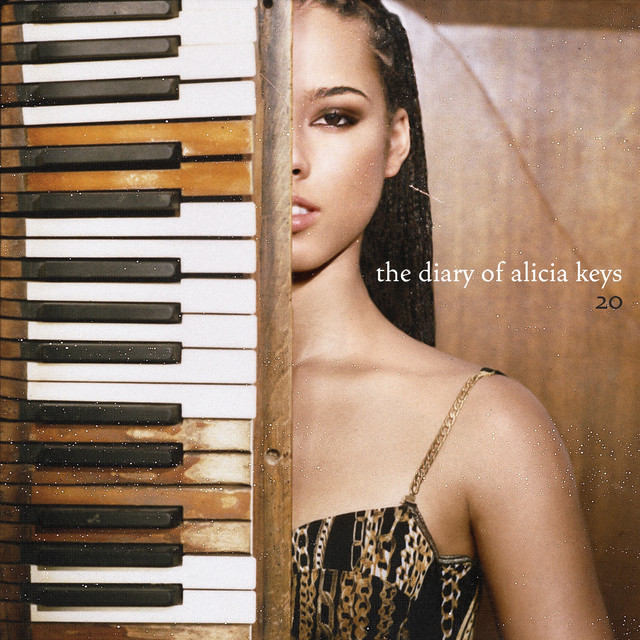R&B artist of “Girl on Fire,” Alicia Keys, is a multi-talented and popular singer, activist, songwriter and producer. Known for having 25 million Spotify listeners, winning the Grammy award 15 times and being a Broadway producer, she is an activist in the U.S. and shares her music with the world. At 42 years of age, Alicia Keys released another album in 2023 called the “Diary of Alicia Keys 20.”
Keys worked under a contract and pumped out many popular albums, with her debut album being “SONGS IN A MINOR.” In 2021, however, she independently branched off into her own Alicia Keys Record, releasing brand new albums.
Released on Dec. 1, 2023, “The Diary of Alicia Keys 20” takes a deep dive into Keys’ diary entries, a revision of the fifteen songs from her sophomore album, “Diary of Alicia Keys,” plus nine bonus songs. Twenty years later on its anniversary, Keys released “Diary of Alicia Keys 20.”
Keys plunges into her 2023 album with the original 2003 song, “Harlem Nocturne,” which begins with a hauntingly magical piano solo before the key changes into an upbeat cadence. Keys describes her ability to take life experiences and plug it into a song unapologetically.
“That’s why I take all I got / That’s why I take all I have / And I put it into this,” Keys sings. “That’s why I took all that I have and put it right here, put it into my diary.”
In “Karma,” the second song in Keys’ new album, she has a beautiful rocking solo and gives inspirational quotes to show karma in society. She is probably targeting a specific person who thinks they can get away with cruelty, where she believes that the bad emotions one puts out will come back and bite them.
“‘Cause what goes around, comes around / What comes up must go down,” Keys sings.
Another line in “Karma” shows how she could be referencing negative past relationships, where others treated her unfairly. Keys believes that someone naming her as their second option is unacceptable, and they will later come running back to her, asking for forgiveness. She could be talking about leaving them and starting a fresh slate.
“Now who’s crying / desiring to come back to me?” Keys sings.
One of Keys’ much-desired unreleased songs is “Golden Child.” As the 17th song in the album, she uses strong analogies and an inspirational pep talk.
“Girl, you can’t be scared / Gotta stand up strong,” Keys sings.
Keys also compares emotions to weather, depicting people’s moods with the ever-changing weather. She could simultaneously be referring to her past trauma or drama, and while she is reassuring others to keep up their health and let others’ opinions roll off their backs, Keys is reassuring herself.
“Golden sunshine’s peeking through the grayness of your mind / Like an ocean is deep, dark and blue / And rain won’t stain your eyes,” Keys sings.
Keys uses another analogy in the song “Dragon Days,” referring to her attachment to a relationship, probably in the past. She compares it to a fiery dragon’s characteristics and the desperate desert craving water like how she craves her man.
“Dragon days, and the fire’s hot / Like the desert needs water / I need you a lot,” Keys sings.
Also in “Dragon Days,” Keys compares her life to requiring the perfect relationship and wanting her prince to cross a monster-infested moat and rescue her, his princess, from a locked castle.
“Cause like a lady in waiting, I’m waiting for you / Like a prisoner tied over alligator waters,” Keys sings.
In “If I ain’t got you” featuring Queen Charlotte’s Global Orchestra, she talks about the future and how money does not guarantee happiness.
“Some people live for the fortune / Some people live just for the fame / Some people live for the power, yeah / Some people live just to play the game,” Keys sings.
Keys received the award for the best female R&B performance from the Recording Academy for her song “If I ain’t got you.” Keys recites part of that song in English, and the other half is sung in Spanish, which is interesting because Keys is known for mostly speaking English. One lyric describes Keys’ belief that her man is only made for her, and she describes how much she would miss him if he left.
“Solo para ti, si me faltas tú, tú, tu,” Keys sings.
On the later tracks, “Nobody, Not Really,” also on the 2003 album, Keys analyzes how the world sees others and how often individuals are worrying about their own actions so much they do not notice what others are doing. This could be Keys’ way of saying one should not care what others think because that person will not care what they did once five minutes has passed. She uses rhetorical questions to sympathize with listeners who are feeling unlovable or even invisible, without someone to confirm and reassure their hard work. Keys would like to encourage more listening and sympathizing, which could show her devotion and supportive platforms to help AIDS and HIV patients.
“I would like someone to heal me with some empathy / Maybe I’m invisible to the world / Does anyone in the world even think of me? / As more than just a hopeless cause?” Keys sings.
With “The Diary of Alicia Keys 20,” Keys improved since the 2003 album because she winds the listener down a path of rereleased 15 songs with rich sound, lengthy instrumentals, and a honey-like voice of an angel. She also includes nine bonus tracks.
Keys has rumored a new concert in New York this December, featuring “The Diary of Alicia Keys 20.” In the future, Keys is expected to launch more albums, and many fans await more singles, albums and concerts nationwide.


